SDG10 - REDUCED INEQUALITIES
المقررات الدراسية موسومة بـ "SDG10 - REDUCED INEQUALITIES"
GRPH405 unit–along with GRPH406- comprise the final Graduation Project in one of the four major fields of the Graphics & Media Arts Department in response to a self-initiated design agenda/brief. Students will finally exploit all their expertise and previous experiences acquired throughout their unit of study to accomplish their final Graphics and Media Arts project.
In this unit students will execute one final research project representing their knowledge, skills and cultural awareness gained in the previous years of study that is closely related to the SDGs. The student will choose one of the four major fields in the Graphic and Media Art department and will focus all his/her tools to accomplish the desired outcome. Students are expected to hand in a final dissertation reflecting the entire process they went through, the background, the context, the literature review and analysis/ critique.
GRPH405 unit will focus on collecting information, literature, analysis in the form of researches, reports, presentations, peer to peer assessment, critiques, and one on one tutorial as well as laying the solid base for the practical visual outcome throughout sketches and technical experimentation. A final dissertation is presented by the end of this unit.
- Teacher: Dr.Sara Ahmed Sayed Ali
- Teacher: Dr.Tamer Assem Ali
- Teacher: Ahmed Ayman Abd Elaleem Nagy
- Teacher: Mariam Ayman Fathy Elnabawy
- Teacher: Basma Barakat Abu Bakr Salih
- Teacher: Alaa El-Gammal
- Teacher: Shaimaa Elsherbeny
- Teacher: Eman Gibrel Ahmed Mohamed
- Teacher: Jana Khaled Gamal Eldin Ellaithy
- Teacher: Marwa Mohamed Abd Elaziz Sherif
- Teacher: Menna Mohamed Zakaria
- Teacher: Dr.Eman Nabil Saad Ibrahem
- Teacher: Hisham Nagy Abdelmonem
- Teacher: Amira Sabry Ahmed
- Teacher: Nagwa Yehia Mohamed El adwy
- Teacher: Rania ezzat amin mahmoud
- Teacher: Dr.Dina gamal abboud
- Teacher: Reem Abdelhakeem Abdelqader Mahmoud
- Teacher: Walid Anwar Mohamed Khairy Alraffey
- Teacher: Mariam Hatem Hagar
1- Overall aims of course
• Increase the awareness of the students to the importance of both ethical and biosafety aspects as a rapidly growing field.
• Understand, identify and solve problems in critical, creative and ethical manner
• Recognize the value of self and others in order to be a productive member of a diverse global society.
• Prepare students to embark on related post –graduate studies of interest which would provide better opportunities and advancement in the relevant areas of dental sciences …etc.
- Teacher: Manar Awad Ahmed Awad Mohamed
- Teacher: Moataz Mohamed Abdel Hafez El-Kholy
- Teacher: Youmna Mohamed Mahmoud Abdelhadi
- Teacher: Nader Nabil El Bokl
- Teacher: Shereen Wagdy Arafat Mousa
1- Overall aims of course
• Increase the awareness of the students to the importance of both ethical and bio safety aspects as a rapidly growing field.
• Understand, identify and solve problems in critical, creative and ethical manner
• Recognize the value of self and others in order to be a productive member of a diverse global society.
• Prepare students to embark on related post –graduate studies of interest which would provide better opportunities and advancement in the relevant areas of dental sciences …etc.
- Teacher: Heba Ahmed Maher Ahmed
- Teacher: Manar Awad Ahmed Awad Mohamed
- Teacher: Hisham El Shishtawi
- Teacher: Moataz Mohamed Abdel Hafez El-Kholy
- Teacher: Youmna Mohamed Mahmoud Abdelhadi
- Teacher: Nader Nabil El Bokl
- Teacher: Sally Sayed Ahmed Daen
- Teacher: Shereen Wagdy Arafat Mousa
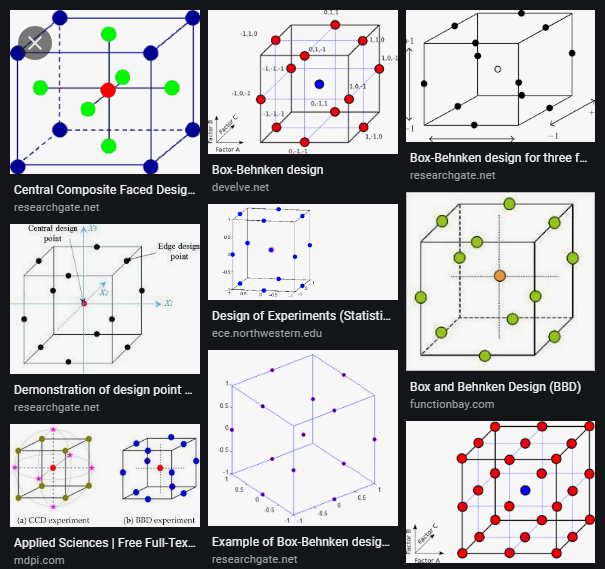
- This module is designed to provide students with Design of Experiments
- Techniques that are effective for studying the factors that may affect a product or process.
- It also provides students with the capability to analyze experimental
results in order to identify the significant factors and evaluate ways to
improve and optimize the design
- Teacher: Sameh Ahmed Salah El-Dein
- Teacher: Youssef Amr Mahmoud Naga
- Teacher: Ali Bahig Ali
- Teacher: Diaa Hafez
- Teacher: Maysa Mahmoud Fathy Omar
- Teacher: Dr.Nabila Nowaira
- Teacher: Prof.Dr.Hafez Radi
- Teacher: Omnia Reda Mazroa
- Teacher: Prof.Nahed Sobhi abd elnour
- Teacher: Mona afifi
- Teacher: Dr. mohamed el said hassan
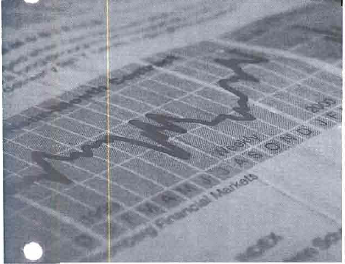
- Teacher: Sameh Ahmed Salah El-Dein
- Dr. Ali Bahig: Youssef Amr Mahmoud Naga
- Dr. Ali Bahig: Ali Bahig Ali
- Dr. Ali Bahig: Amgad Bayoumy Aly
- Teacher: Diaa Hafez
- Teacher: Maysa Mahmoud Fathy Omar
- Teacher: Dr.Nabila Nowaira
- Teacher: Prof.Dr.Hafez Radi
- Dr. Ali Bahig: Mina Sameh Ghobrial
- Teacher: Prof.Nahed Sobhi abd elnour
- Teacher: Mona afifi
- Teacher: Dr. mohamed el said hassan
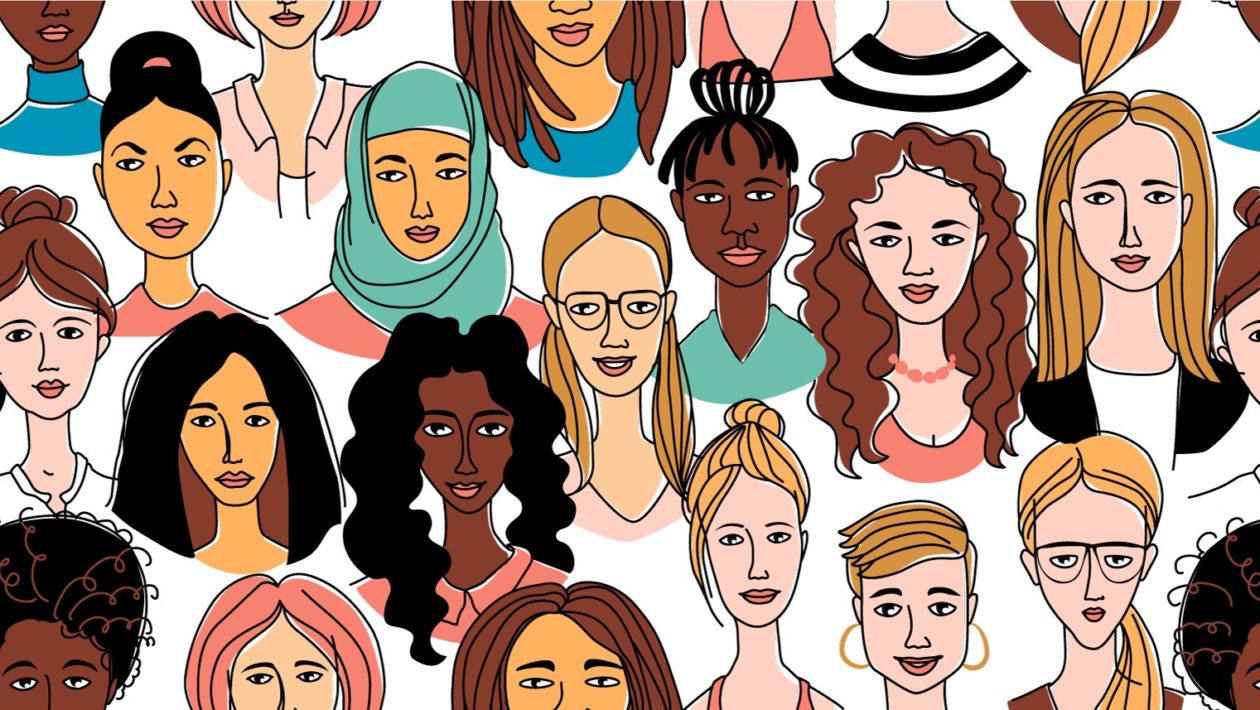
- Teacher: Maha Abd Elhakeem Hassan
- Teacher: Yasmine Ahmed Sweed
- Teacher: Hebat Allah Adel Shaaban Hassan
- Teacher: Yasmeen Fahd Mohamed
- Teacher: Dr.Nagla Ibrahim Saleh al-Hadidy
- Teacher: Nourhan Khaled Ahemd
- Teacher: Dr.Olfat Nour El-Din Kerney Mohammad Yussef
- Teacher: Dr.Soha Raafat
- Teacher: Amani Wageh Abd Al-Halim
- Teacher: Hala Yousry Darwish
- Teacher: Ehsan Abd El Moniem Zaki
- Teacher: Yasmine Ahmed Sweed
- Teacher: Tasneem Al-Moataz Mohamed Rashad
- Teacher: Hebat Allah Adel Shaaban Hassan
- Teacher: Noha Faisal Mohamed Abdelmotagally
- Teacher: Dr.Nagla Ibrahim Saleh al-Hadidy
- Teacher: Nourhan Khaled Ahemd
- Teacher: Dr.Kholoud Mansour Khalifa
- Teacher: Dr.Soha Raafat
- Teacher: Amani Wageh Abd Al-Halim
- Teacher: Hala Yousry Darwish
- Teacher: Maha Abd Elhakeem Hassan
- Teacher: Yasmine Ahmed Sweed
- Teacher: Hebat Allah Adel Shaaban Hassan
- Teacher: Dr.Nagla Ibrahim Saleh al-Hadidy
- Teacher: Nourhan Khaled Ahemd
- Teacher: Nadeen Khaled Mohamed Kamal
- Teacher: Dr.Soha Raafat
- Teacher: Nadia Salah El Din El Kholy
- Teacher: Amani Wageh Abd Al-Halim
- Teacher: Hala Yousry Darwish
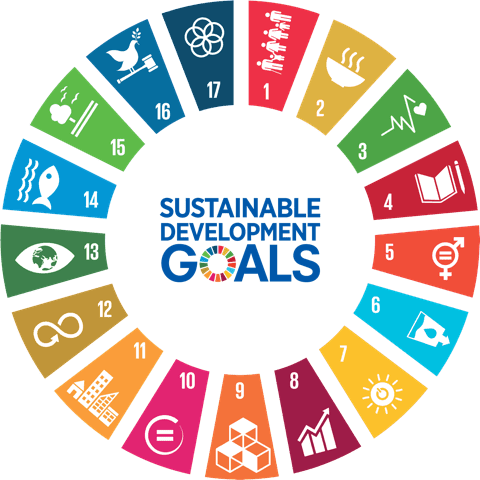
Discourse Analysis- frequently known as “language use above the level of the sentence” provides students with the opportunity to study the meaningful production and interpretation of texts and talk. students get introduced to the field of Discourse Analysis in order to unpack texts for generating meaning and bind it with their study of society and culture. They will gain an advanced understanding of the concept of ‘context’ and its relevance in the process of the production of meaning. The course provides students with frameworks and tools to examine and critique texts and instances of language use that is much relevant to socio-economic and socio-cultural issues such as gender, social power and minorities, environment, health and pandemics
- Teacher: Rania Abd El Fattah Abd El Hameed
- Teacher: Alaa Ali El Badri
- Teacher: Hebat Allah Adel Shaaban Hassan
- Teacher: Dr.Marwa El-Sheikh
- Teacher: Dr.Nagla Ibrahim Saleh al-Hadidy
- Teacher: Dr.Zakaria Kamal Abdel Maguid Alssiefy
- Teacher: Nourhan Khaled Ahemd
- Teacher: Dr.Ghada Mohamad Al-Akhdar
- Teacher: Dr.Olfat Nour El-Din Kerney Mohammad Yussef
- Teacher: Dr.Soha Raafat
- Teacher: Dr.Radwa Zakaria Abdel-Rahman

Animal studies is among the budding fields that is attracting a lot of attention over the past two decades. This is partially due to the cultural and conceptual shifts in the figuration of animals from mere objects, serving the humans, to subjects in their own rights. Admittedly, such shifts are triggered by our growing awareness of environmental and animal rights questions in what may be deemed a post-human age.
- Teacher: Hebat Allah Adel Shaaban Hassan
- Teacher: Dr.Nagla Ibrahim Saleh al-Hadidy
- Teacher: Nourhan Khaled Ahemd
- Teacher: Dr.Olfat Nour El-Din Kerney Mohammad Yussef
- Teacher: Dr.Soha Raafat
UN Sustainable Development Goals (SDGs)
This unit addresses issues of great relevance and importance in our world today. They are the subject of vibrant discussions and debates and have actually been tabled on the agendas of numerous prestigious world-rank organizations. They have also been listed as Sustainable Development Goals (SDGs) by the United Nations. Our unit addresses two of these important goals; one of which is gender equality studied under Feminism, while the other is reducing discrimination studied under Post colonialism.
- Teacher: Maha Abd Elhakeem Hassan
- Teacher: Yasmine Ahmed Sweed
- Teacher: Hebat Allah Adel Shaaban Hassan
- Teacher: Yasmeen Fahd Mohamed
- Teacher: Noha Faisal Mohamed Abdelmotagally
- Teacher: Dr.Nagla Ibrahim Saleh al-Hadidy
- Teacher: Nourhan Khaled Ahemd
- Teacher: Nadeen Khaled Mohamed Kamal
- Teacher: Malak Khaled Nabil Mohamed
- Teacher: Maha Mamdouh Mohamed
- Teacher: Dr.Kholoud Mansour Khalifa
- Teacher: Dr.Ghada Mohamad Al-Akhdar
- Teacher: Dr.Olfat Nour El-Din Kerney Mohammad Yussef
- Teacher: Dr.Soha Raafat
- Teacher: Sohila Saad Ahmed Abd Elaziz
- Teacher: Kholoud Waheed Ezzat
- Teacher: Hala Yousry Darwish
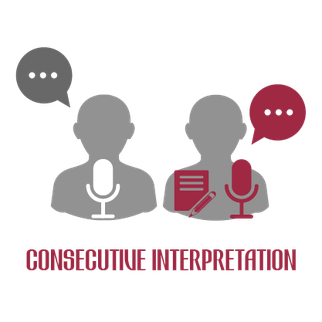
LU Code : TR 301
Title : Consecutive Translation
Credit Hours/Points : 3
Level : 3
Prerequisites : TR 100, TR 101, TR 200, TR 201
Learning Outcomes:
Knowledge:
On completion of the course, for consecutive interpretation, students should:
- Indicate and account for the phenomena of oral language communication and transfer and outline the techniques of transferring language and terminology peculiar to different realms of human knowledge.
Skills:
On completion of the course, for consecutive interpretation, students should:
- Develop the intellectual abilities of working memory.
- Produce an oral account in the target language after listening to the source text consecutively.
- Develop the skill of analysing and resolving issues related to translatability problems, linguistic competence, and thus dexterously transfer source language segments from one language to another consecutively.
- Comparing and contrasting structural peculiarities of both English and Arabic languages in various fields.
- Carry out consecutive language transfer in a manageable limited time span under stressful working conditions and professional constrains.
Learning Materials:
Discussion, supervised practice and self-access laboratory interpretation assignments. Passages on various topics will be used as a teaching material.
Assessment:
20% Mid-term Exam
30% Final-term Exam
50% Coursework: 30% for practical, 10% assignments and Portfolio, and 10 % quizzes and a small project
References:
- interpreting: A corpus-based analysis,” Interpreting 7-1, p. 51-76.
- Pöchhacker, F. (in press): “‘Going simul?’ Technology-assisted consecutive interpreting,” in Bao, C. et al. (eds.) Proceedings of the MIIS Anniversary Conference, 9-11 September 2005.
- Pradas Macías, M. (2006): “Probing Quality Criteria in Simultaneous Interpreting: The role of silent pauses in fluency,” Interpreting 8-1, p. 25-43.
- Napier, J. (2003). A sociolinguistic analysis of the occurrence and types of omissions produced by Australian Sign Language–English interpreters. In M. Metzger, V. Dively, S. Collins & R. Shaw (Eds.), From topic boundaries to omission: New research on interpretation (pp. 99–153). Washington, DC: Gallaudet University Press.
- Pöchhacker, F. (2004). Introducing interpreting studies. New York, NY: Routledge. Roy, C. (2000). Interpreting as a discourse process. New York, NY: Oxford University Press. Roy, C. (2005). A discourse-based approach to teaching interpreters. In R. Locke McKee (Ed.), Proceedings of the inaugural conference of the World Association of Sign Language Interpreter, (pp. 91–100). Southampton, UK: Douglas McLean Publishing.
- Russell, D. (2002b). Reconstructing our views: Are we integrating consecutive interpreting into our teaching and practice? In L. Swabey (Ed.), New designs in interpreter education: Proceedings of the 14th National Convention of the Conference of Interpreter Trainers (pp. 5–16). St. Paul, MN: Conference of Interpreter Trainers.
- Russell, D., & Malcolm, K. (2009). Assessing ASL–English interpreters: The Canadian model of national certification. In C. Angelelli & H. Jacobson (Eds.), Testing and assessment in translation and interpreting (pp. 331–376). Amsterdam/Philadelphia: John Benjamins.
- Kalina, Sylvia. 2005. “Quality Assurance for Interpreting Processes“, Meta 50, 2
- Teacher: Dr.Rania Abdel Baky Ali
- Teacher: Dr. Safa'a Ahmed
- Teacher: Hebat Allah Adel Shaaban Hassan
- Teacher: Dalia Ibrahim Ahmed
- Teacher: Dr.Nagla Ibrahim Saleh al-Hadidy
- Teacher: Nourhan Khaled Ahemd
- Teacher: Nourhan Mohamed El arabie
- Teacher: Noureldin Mohamed Nour Eldin
- Teacher: Amr Nour El Din Hassan
- Teacher: Dr.Soha Raafat

The teaching of Contrastive Analysis is conceived within the scope of comparing and contrasting Arabic and English in relation to improving Second Language Acquisition and translation through predicting learning difficulties and translation errors that may occur as a result of L1 interference and negative transfer. In this respect, the course participates in providing quality education. Participants are also equipped with approaches and tools of spoken, written and visual text analysis in English and Arabic to assess the impact of the different social contexts on text production and reception. Texts reflect issues of gender, social power as well as health & pandemics.
- Teacher: Rania Abd El Fattah Abd El Hameed
- Teacher: Hebat Allah Adel Shaaban Hassan
- Teacher: Dr.Nagla Ibrahim Saleh al-Hadidy
- Teacher: Nourhan Khaled Ahemd
- Teacher: Dr.Ghada Mohamad Al-Akhdar
- Teacher: Yara Mohamed Zidan Ashour
- Teacher: Fatma Mohammed Elmahdy
- Teacher: Dr.Soha Raafat
This course provides students with an understanding of western philosophic concepts that formed the foundations of modern civilization. It also addresses major issues that relate to the UN Sustainable Development Goals (SDGs) such as establishing justice & peace, reducing inequalities and building strong political institutions. As such, the course complements knowledge acquired by MSA students of English Studies in the fields of culture, enhances their skills in the analysis of socio-cultural phenomena in literature, develops their Problem-solving skills, communication skills, persuasive powers and writing skills. In addition, the course helps students develop sound methods of research and analysis as well as tools to evaluate and criticize different trends of thought.
- Teacher: Maha Abd Elhakeem Hassan
- Teacher: Tasneem Al-Moataz Mohamed Rashad
- Teacher: Hebat Allah Adel Shaaban Hassan
- Teacher: Nourhan Ashraf Muhammad
- Teacher: Yasmeen Fahd Mohamed
- Teacher: Sally Hanna Michael Hanna
- Teacher: Dr.Nagla Ibrahim Saleh al-Hadidy
- Teacher: Nourhan Khaled Ahemd
- Teacher: Dr.Ghada Mohamad Al-Akhdar
- Teacher: Dr.Soha Raafat
- Teacher: Dr.Mustafa Riad

This course aims to have students exposed to a wide variety of texts and extracts to acquire knowledge about the differences between the three main literary genres (and their sub-types), through recognition of their technical characteristics. Students are also trained to use literary & critical terminology to produce professional critical analyses of the assigned as well as any other literary texts. Besides aiming at the development of the students’ cognitive & analytical skills, the course also aims to develop their aesthetic & creative faculties in assigning them both critical and creative tasks.
- Teacher: Dr.mona Abd Al-Rahman Sharif
- Teacher: Ehsan Abd El Moniem Zaki
- Teacher: Yasmine Ahmed Sweed
- Teacher: Hebat Allah Adel Shaaban Hassan
- Teacher: Dr.Rasha Amr Ahmed Youssef Malek
- Teacher: Nourhan Ashraf Muhammad
- Teacher: Abd Elhamid Nasr Tamim
- Teacher: Yasmeen Fahd Mohamed
- Teacher: Dr.Nagla Ibrahim Saleh al-Hadidy
- Teacher: Nourhan Khaled Ahemd
- Teacher: Dr.Hend Khaled Mohamed El Hady
- Teacher: Nadeen Khaled Mohamed Kamal
- Teacher: Malak Khaled Nabil Mohamed
- Teacher: Salma Maged Sayed Mohamed
- Teacher: Dr.Kholoud Mansour Khalifa
- Teacher: Hanaa Moustafa Kamel
- Teacher: Dr.Olfat Nour El-Din Kerney Mohammad Yussef
- Teacher: Dr.Soha Raafat
- Teacher: Salma Samer Ahmed Morad Hanno
- Teacher: Amani Wageh Abd Al-Halim
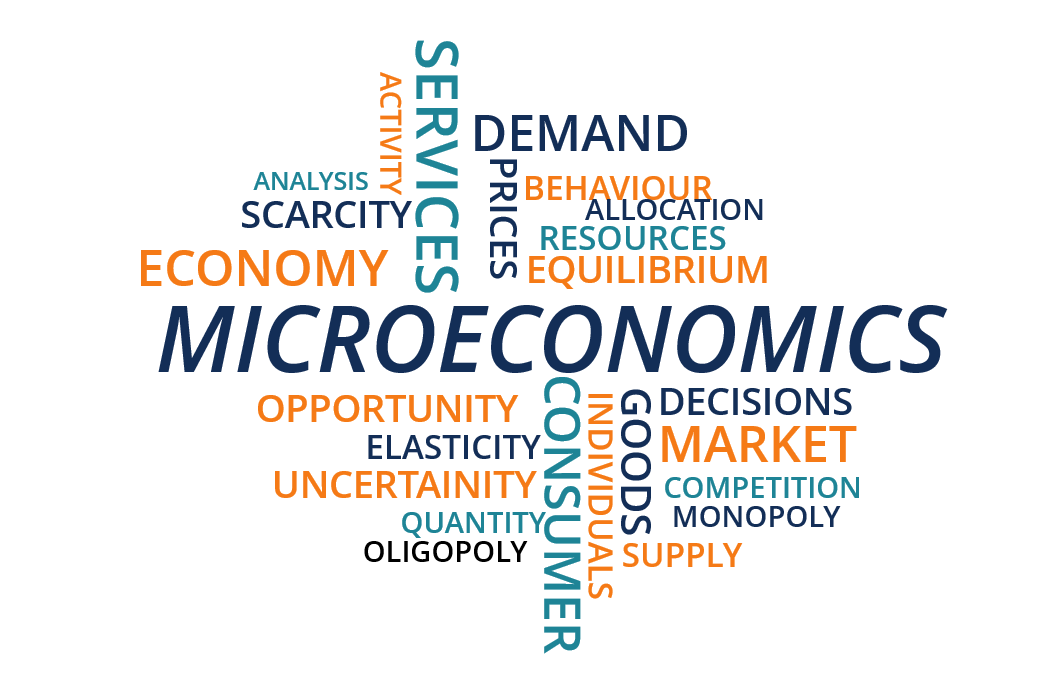
This module aims to further enhance and complement the students’ knowledge and skills in basic econometrics and to tackle further problems encountered in estimating regression models. The module aims thus to prepare students with the necessary knowledge and skills needed to start their graduate econometrics module. All econometric models built are directly or indirectly linked to several Sustainable Development Goals (SDG) aiming to narrowing the gap economic theory and empirical applications through testing real live data. It is related to reducing poverty, improving health, climate action, sustainable and responsible production and consumption behavior , and enhancement of competitiveness , industries and innovation.
- Teacher: Dr.Doaa Abdou
- Teacher: Nada Fouad Kassem Elsahaar
- Teacher: Asmaa Mohamed Kamal Deifallah
- Teacher: Esmat Mostafa Kamel
- Teacher: Adel Samir Mohammed Awaad
This unit aims to enhance the students’ knowledge and skills needed to conduct a research paper of substantial depth and length under the supervision of a faculty member, whether it is theoretical based on literature review and analysis, or empirical based on econometric, statistical or mathematical analysis.
Topics selected by students for their graduation projects are closely linked to sustainable development goals, especially SDG8 related to decent work and economic growth, as they create models where they try to determine the main catalysts for growth in certain countries or regions. Students also choose topics related to reducing poverty (SDG1) or inequality (SDG10), quality education (SDG4) gender equality (SDG5) and many other SDGs.- Teacher: Dr.Doaa Abdou
- Teacher: Nadine Amr Mohamed Abdelmoneim Hosny
- Teacher: Dr. Heba Ezz Helmy
- Teacher: Maha Ismail Mahfouz Ismail
- Teacher: Salma Kamal Zanaty Mahran
- Teacher: Nadeen Sherif Mamdouh Eladawy
This unit aims to enhance the students’ knowledge and skills needed to conduct a research paper of substantial depth and length under the supervision of a faculty member, whether it is theoretical based on literature review and analysis, or empirical based on econometric, statistical or mathematical analysis.
Topics selected by students for their graduation projects are closely linked to sustainable development goals, especially SDG8 related to decent work and economic growth, as they create models where they try to determine the main catalysts for growth in certain countries or regions. Students also choose topics related to reducing poverty (SDG1) or inequality (SDG10), quality education (SDG4) gender equality (SDG5) and many other SDGs.
- Teacher: Dr.Doaa Abdou
- Teacher: Dina Ali Mohamed Ali Seiam
- Teacher: Nadine Amr Mohamed Abdelmoneim Hosny
- Teacher: Dr. Heba Ezz Helmy
- Teacher: Fatma Hesham Saber
- Teacher: Salma Kamal Zanaty Mahran
- Teacher: Esmat Mostafa Kamel
- Teacher: Nadeen Sherif Mamdouh Eladawy
- Teacher: T.A.Nouran said mohamed abd el menaam mahmoud
- Teacher: Dr.Doaa Abdou
- Teacher: Menna Ahmed Elsayed Salem
- Teacher: F.T. Instructor.Hend Al Ebiary
- Teacher: Nadine Amr Mohamed Abdelmoneim Hosny
- Teacher: Mona Bedier
- Teacher: Nada Fouad Kassem Elsahaar
- Teacher: Salma Kamal Zanaty Mahran
- Teacher: Dr.Mai Mohammed Yasser
- Teacher: Nadeen Sherif Mamdouh Eladawy
- Teacher: Amal Soliman
- Teacher: Dr.Rehab mohammed mahmoud el bordiny
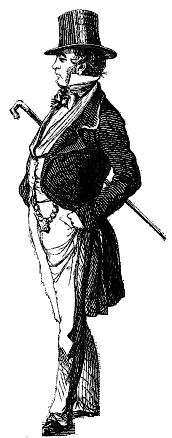
This module is the first part of two twin modules teaching the history of economic thought. The aim of this module is to explain and evaluate the evolution of economic thought starting from the Greek times till the mid-nineteenth century and the emergence of Marxist thought.
Although historical, this module contributes in the theoretical economic underpinning of the 2030
Agenda and the role of classical and neoclassical economic theory in this context. Most economic theories – as the 2030 Agenda – are related to
every aspect of sustainability especially those linked to decent work and economic growth (SDG 8), reduced inequality (SDG 10) and peace, justice and strong institutions (SDG 16).
- Teacher: Dr.Doaa Abdou
- Teacher: Menna Ahmed Elsayed Salem
- Teacher: Dina Ali Mohamed Ali Seiam
- Teacher: Nada Fouad Kassem Elsahaar
- Teacher: Dr. Heba Ezz Helmy
- Teacher: Salma Kamal Zanaty Mahran
- Teacher: Nour Tamer Ali Elsayed Ghouniem
- Teacher: Roba Tarek Mahmoud El Nahas
- Teacher: Dr.Rehab mohammed mahmoud el bordiny
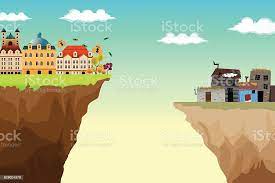
This module is designed to explore the existing and challenging subjects of economic development. The course focuses on the basic concepts of economic development, the development gap, measurement of income distribution and poverty, sources of finance and analyses some of the major development problems and policies.
Many of the United Nations 17 Sustainable Development Goals are discussed in this module especially with respect to the relative success of developing countries in achieving such goals.
- Teacher: Dr.Doaa Abdou
- Teacher: Nadine Amr Mohamed Abdelmoneim Hosny
- Teacher: Dr. Heba Ezz Helmy
- Teacher: Salma Kamal Zanaty Mahran
- Teacher: Dr.Rehab mohammed mahmoud el bordiny

This module is the second part of two twin modules focusing on the history and development of economic thought. The aim of this module is to explain and evaluate the evolution of economic thought starting from the end of the first part module namely the emergence of Marxist thought till the contemporary developments in macroeconomics and microeconomics.
Although
historical, this module contributes in the theoretical economic
underpinning of the 2030
Agenda and the role of classical and neoclassical economic theory in
this context. Most economic theories – as the 2030 Agenda – are related
to
every aspect of sustainability especially those linked to decent work
and economic growth (SDG 8), reduced inequality (SDG 10) and peace,
justice and strong institutions (SDG 16).
- Teacher: Dr.Doaa Abdou
- Teacher: Menna Ahmed Elsayed Salem
- Teacher: Nada Fouad Kassem Elsahaar
- Teacher: Dr. Heba Ezz Helmy
- Teacher: Dr.Rehab mohammed mahmoud el bordiny
This course is the first phase of the graduation projects of PR and Advertising. It is mainly the extensive research part. It contains the extensive research part, data collection, data analysis where the students do a survey and analyse the results and relate the results to the already read material.
The research is about a social marketing problem to be solved in the Egyptian society, or about rebranding of an already existing Egyptian entity.
The idea of the research has to be related to the SDGs and the Egyptian sustainable plan 2030.
The students do not only study the problem in the Egyptian society, but also they provide the scientific solutions for it. They are asked to seek professional help from real practitioners in the field to provide real solutions to the problem. This happens through the interviews with practitioners related to the problem.
The same thing applies in the rebranding part, they manage to choose an Egyptian entity and follow the rebranding marketing plan to make it a new different entity.
In both cases, they do huge extensive literature review, similar campaigns and its results, Swot analysis, macro environment, decide on the variables for the survey, conduct the survey, analyse it and come up with solutions.
SDG- Teacher: Radwa Ahmed Youssef Manie
- Teacher: Lama Atef Atta Atta Bisher
- Teacher: Haya Badr Mohamed
- Teacher: Nada Bahgat Abd Elazim Mohamed
- Teacher: Rania Elsaied Ahmed Shaaban
- Teacher: Lamees Magdi Mahmoud El Baghdady
- Teacher: Hassan Marrie
- Teacher: Ahmed Mohamed Abdel Aziz
- Teacher: Monia Mohsen Mahmoud fahmy
- Teacher: Nesrin Nader
- Teacher: Islam Nasser
- Teacher: Rana Reda Abbas Mohamed Rashad
- Teacher: Sally Saeed Hassanien Mohamed
- Teacher: Dina Younis
- Teacher: Monda magdi Mustafa
This module aims:
• To enable students to design, refine and do the preparatory research for the development of an independent, self-directed broadcast project;
• To enable students to produce work which will build on, extend and/or refine issues, practices, concepts and approaches which formed part of their previous learning on their programme of study;
• To promote the development of the skills required for the development of independent project work.
• To allow students to develop project work which will permit a critical reflection on broadcasting and broadcast practice.
Ideas and topics tackled in this unit serve the development of the society through discussing different social problems, community services initiatives, health and well being issues, gender equality, economic growth, reduced inequalities and partnerships. The SDGs are a main theme in this unit, students do extensive research to cover the topic in hand and develop an independent project.
- Teacher: Afaf Abdel Gawad Ali Tobbala
- Teacher: Yasmin Ahmed Ali Hasan Fouad
- Teacher: Salma Ali Samy
- Teacher: Dr.Nesseen Bahaa Aldeen
- Teacher: Habiba ElSherbiny
- Teacher: Mona Fathy Abd Elrahman Badran
- Teacher: Hala Galal Elsayed Mohamed
- Teacher: Khaled Gamal Abdou
- Teacher: Donia Mohamed Essam
- Teacher: Reham Mohamed Salah
- Teacher: Hala Mostafa Alzahed
- Teacher: Nervan Nabil Mohamed Abass
- Teacher: Fieby Raouf Fahmy
- Teacher: Reham Sami Hussein
- Teacher: Noha Samir Taha Mahgoub
- Teacher: Hams Tamer Abdellatif Abdelrazik
- Teacher: loay fahmy hassan